Why Nestle and Blue Bottle Work Together?
For professional baristas, please follow the coffee workshop (Wechat official account cafe_style)
"I am very excited to work with Nestle to develop into a global leader in boutique coffee for a long time. "Blue Bottle CEO Bryan Meehan said.
Yes, Blue Bottle, an American boutique coffee brand beloved by literary youth around the world, officially announced in mid-September that it would buy a 68% stake in Swiss food giant Nestl é, with a market capitalization of about $500 million, casting a shock bomb in the coffee industry.
When the symbol of industrialization of food companies, and pay attention to the handmade boutique coffee, does it mean that the coffee market changes? What is the reason for the two brands to work together? What will be the future development of Blue bottle?
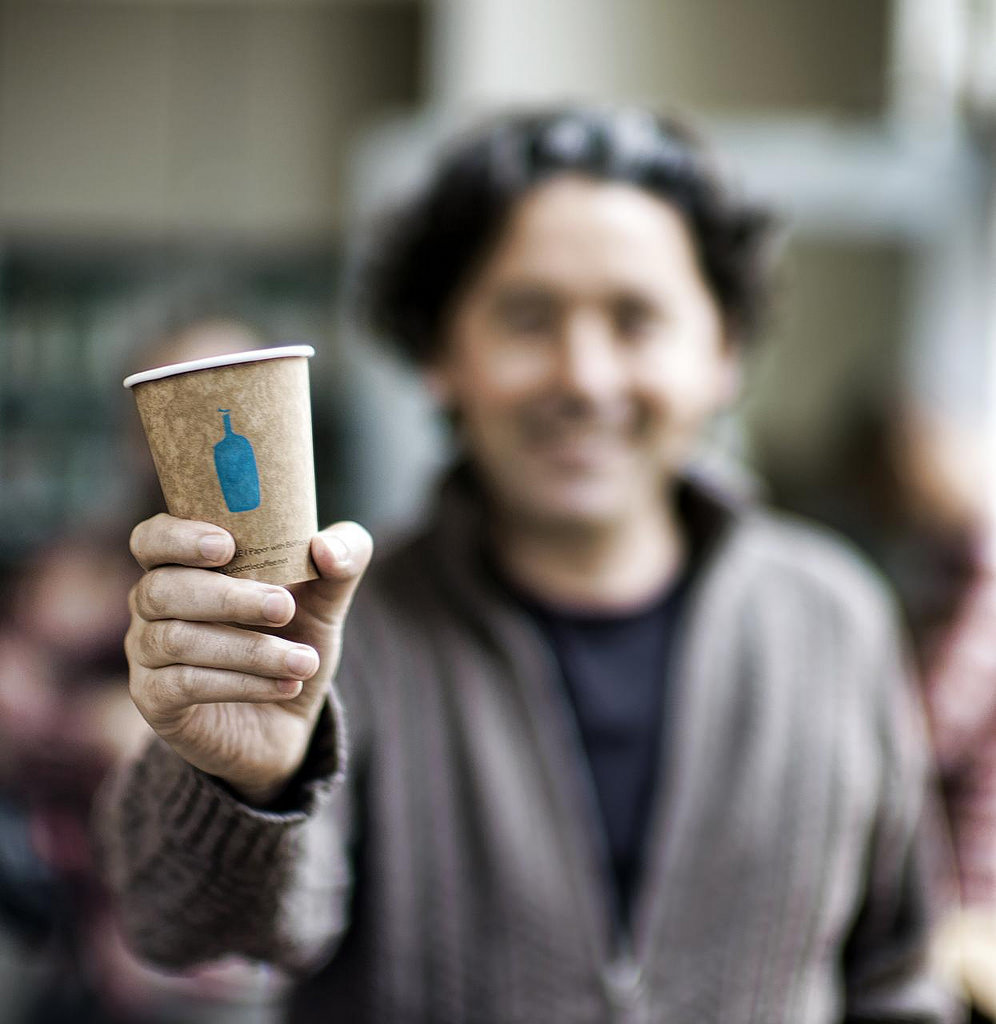
Review the birth of the blue bottle
The New York Times reported that in 2002, James Freeman gave up his job as a professional clarinet player to pursue another passion-coffee roasting.
Starting in a 186-square-foot area in Oakland, Calif., he named his new business Blue Bottle Coffee. Fifteen years later, Blue Bottle is no longer an one-person coffee shop, but has become one of the most famous handmade coffee brands in the world.
Fish water, water fish
According to the boutique coffee association (Specialty Coffee Association), this niche market is expanding rapidly and now accounts for 15-20 per cent of total coffee consumption in the US. But perhaps more important than rapid growth is the higher price and better net profit of boutique coffee.
The wave has attracted the interest of big companies, such as Starbucks' launch of high-end sub-brand Reserve collection and stores against emerging rivals, and European investment giant JAB Holdings has embarked on a coffee empire, which includes popular brands Jacob Douwe Egberts and Peet's Coffee & Tea, as well as high-end brand Stumptown Coffee Roasters.
The acquisition of a majority stake in Blue Bottle will help Nestl é expand its established range of Nestle coffee and capsule coffee machines into the red boutique coffee field on the basis of a customer base with high brand loyalty. The move will also improve the fact that it is not easy for Swiss food leaders to operate in North America.
For Blue Bottle, the deal will not only usher in new investors sitting on KitKat chocolate, Meru and other well-known products, but with Nestl é as a major shareholder, it will also accelerate its store plans to open stores across North America and Asia to sell coffee beans and New Orleans cold coffee.
They promised, "because they like what you are doing, they want to help you grow." "Freeman said in an interview. "the world's largest grocer is really very supportive of good coffee. "
Under the terms of the deal, Nestl é will take a 68 per cent stake in Blue Bottle and the rest will be held by Blue Bottle management and employees. Neither side will disclose the financial terms.
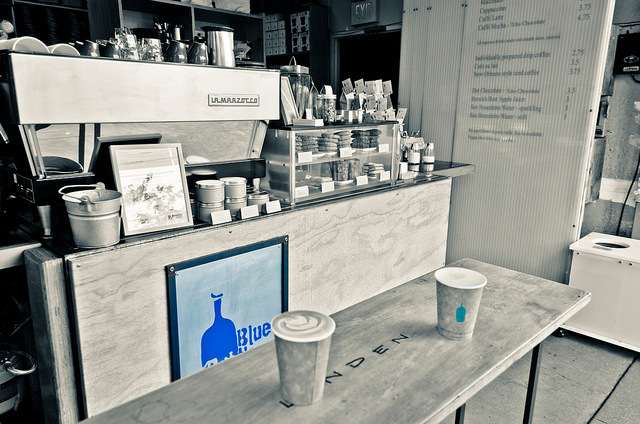
Analyzing the charm of Blue bottle
The success of Blue bottle is obvious, but how did they do it? Although Blue Bottle is one of the highlights of the third wave of coffee, it clearly stands out from its competitors. Instead of replicating what most boutique cafes do, such as holding barista competitions and writing long bean-hunting trips, they focus on conveying the beauty and experience of a good cup of coffee.
This strategy actually reflects the background of the founder Freeman in playing classical music, and he began to develop an interest in baked beans while touring with an orchestra. Instead of advocating the rebellious rock spirit of its competitors, Freeman is quiet and calm, like a cup of coffee slowly extracted from the heart.
However, the industry has also ridiculed the too flashy words used in Freeman publicity and the lack of seriousness in dealing with the coffee profession. However, Freeman's approach has attracted a lot of fans, especially those who are not familiar with coffee or have despised those in the posturing boutique coffee industry in the past.
"I find that other boutique coffee shops are friendly to young and fashionable customers, but a little contemptuous of older customers. "said Michele Carlstrom, a guest at Blue Bottle's Brooklyn, New York branch.
Blue Bottle's storefront space is simple and modern, which mainly stems from Freeman's own love of Japanese aesthetics. Most branches are located in areas where business people gather, such as the San Francisco Ferry Building and the Rockefeller Center in Midtown Manhattan.
"I think if you want to enjoy a good cup of coffee in the morning, we will always come here. "said Zahra Tangorra, another customer at the Brooklyn branch. "they put a lot of thought into it, the products are exquisite, and the atmosphere is great and warm. "
Expansion plans from physical to virtual
Blue Bottle's approach has created huge growth, and the number of stores is expected to nearly double from 29 to 55 by the end of the year. In addition, they continue to develop ready-to-drink products and order coffee beans online.
Their comprehensive coffee powder costs US $17 (about NT $510) per 340g, while a single serving of the same amount of coffee costs US $40 (NT $1205). Have no idea? Compared with affordable coffee, the US chain doughnut store Dunkin' Donuts' 450g of mixed coffee powder is 8.99US dollars (about NT $270,700), the gap is obvious.
Founder Freeman and CEO Bryan Meehan both say revenue will grow by 70 per cent this year.
Although most of Blue Bottle's stores are still in the United States, they have successfully entered Japan, one of the most prosperous markets for boutique coffee, with a total of six stores. Meehan recalled that he had just announced that he was going to enter Japan, when 100 interested people wanted to apply for baristas.
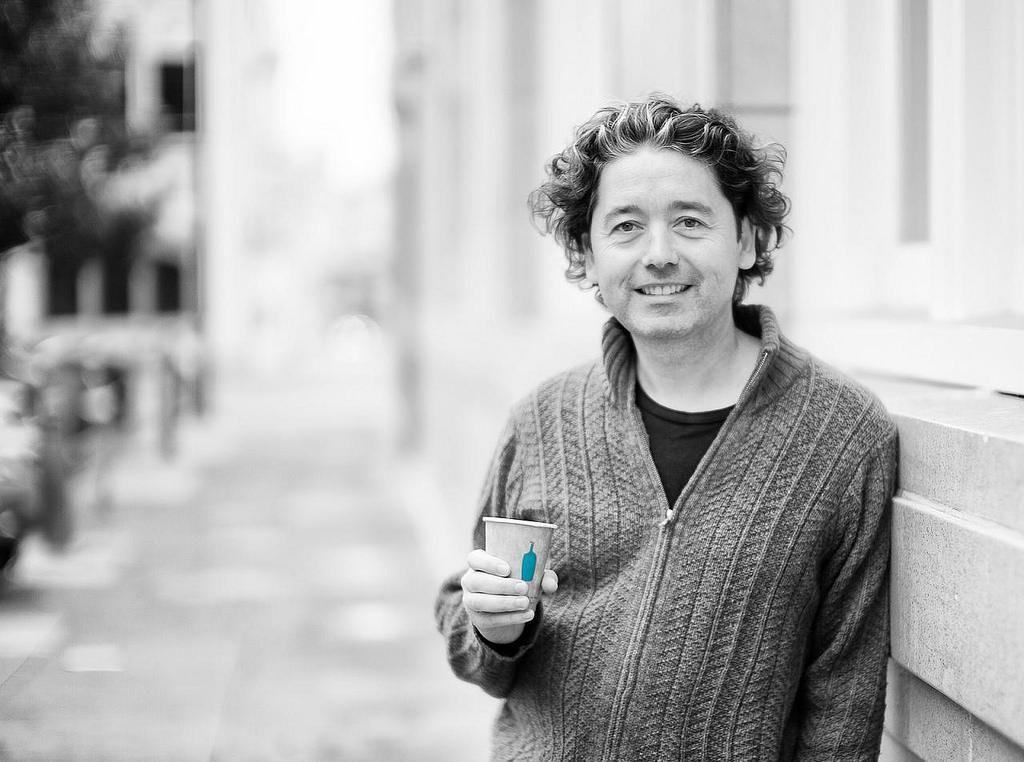
Shake up the coffee market
According to the Business Insider report, over the past 15 years, Blue Bottle has successively raised US $120 million from well-known companies such as Morgan Stanley, Fidelity Investments, Silicon Valley venture capital firm True Ventures, and a number of celebrities, and now that Nestl é has bought nearly 70% of its shares, it is bound to continue to thrive. what impact will this have on the coffee market?
The chief executive of Starbucks has said trendy independent coffee shops are their biggest threat. Behind Blue Bottle, which is now loved by Wenqing, there are more food giants with annual revenue of tens of billions of dollars, which has great potential to become an important threat to coffee giants in the market.
The news of Nestl é's acquisition of Blue bottle broke many people's glasses because they were worried about the loss of characteristics and quality after the expansion of Blue bottle, which may be because Nestl é has always given the image of a big food manufacturer in human industry.
But from an optimistic point of view, if the blue bottle can maintain the existing level, at the same time in the form of shops or capsule coffee with environmentally friendly materials, so that more people can start to come into contact with boutique coffee, is it not conducive to the development of coffee culture? Let's see what the fate of Blue bottle will be.
Source of the article:
Nestl é Targets High-End Coffee by Taking Majority Stake in Blue Bottle
Nestl é is spending up to $500 million to buy a majority stake in the trendy coffee chain Blue Bottle
Important Notice :
前街咖啡 FrontStreet Coffee has moved to new addredd:
FrontStreet Coffee Address: 315,Donghua East Road,GuangZhou
Tel:020 38364473
- Prev
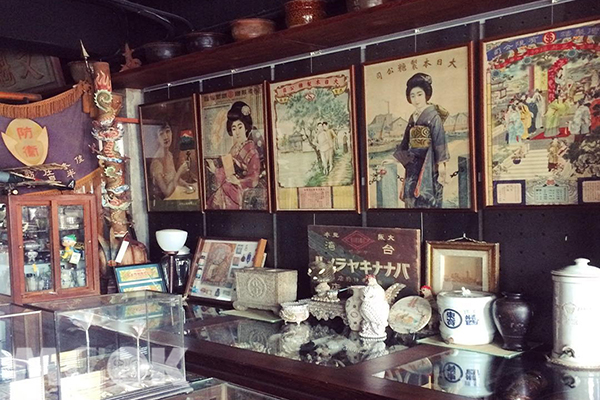
Qiu Hui Culture Library, a Taiwan cultural relics cafe also loved by the Japanese, is closed.
For the exchange of professional baristas, please follow the coffee workshop (official Wechat account cafe_style). In recent years, retro nostalgia has sprung up in Taiwan, which seems to be blowing a different kind of Renaissance. Hidden in the alleys of Taipei, there is a cultural relic cafe called Qiu Hui Literature Library, which condenses Taiwan's 400-year cultural history. As soon as I entered the store, I felt as if I had gone through the time tunnel and went back to the prosperous days of Taiwan.
- Next
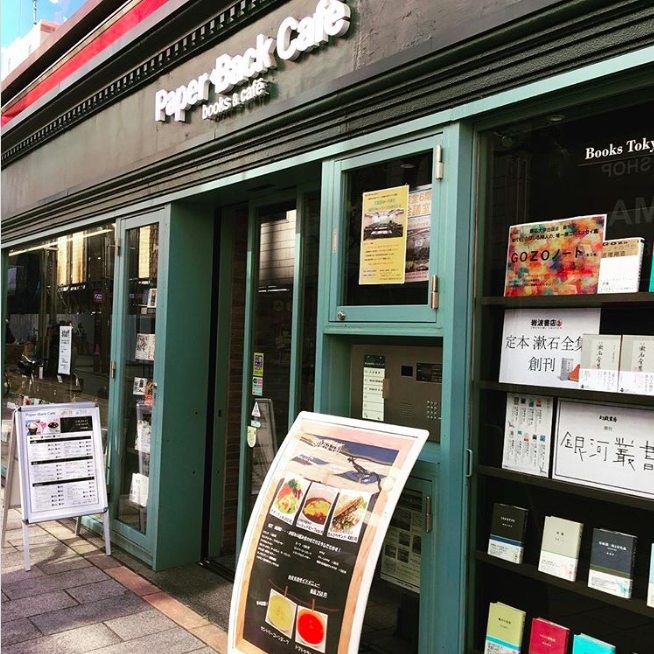
Tokyo's four must-see coffee shops for book lovers!
Professional barista communication, please pay attention to coffee workshop (Weixin Official Accounts cafe_style) How to make yourself enjoy reading a good book, but also can match a cup of coffee with excellent flavor? Well, for coffee lovers at least, sipping this bittersweet drink while reading is enough to start the day and an ideal way to pass the time. Coffee and books are many people
Related
- What documents do you need to go through to open a coffee shop? coffee shop coffee shop certificate processing process
- How to purchase Coffee beans in small Cafe how to choose a suitable supplier for domestic Coffee supply Company
- How to drink Starbucks Fragrance White Coffee? how to make Australian White Coffee? what Italian coffee beans are recommended?
- The Story of Flora Coffee: the name of Flora Coffee Bean and the implication of the Flowers on Florna Coffee
- How much does a cup of coffee cost? How much is the profit of a cup of coffee? What is the profit of the coffee shop in a year?
- Yunnan small Coffee, known as "fragrant Coffee", introduces the characteristics of Alpine Arabica Coffee producing areas in Yunnan, China
- 2023 latest Starbucks full menu price list how much is a cup of Starbucks coffee what is better to drink the most popular hot and cold drinks recommended
- Starbucks different kinds of Coffee Price list Starbucks menu 2023 Top Ten Best drinks in Starbucks
- Starbucks Spring praise Comprehensive matching Coffee Bean theme Story Packaging implication and taste description
- The cost of a cup of coffee latte American coffee cost price and selling price

